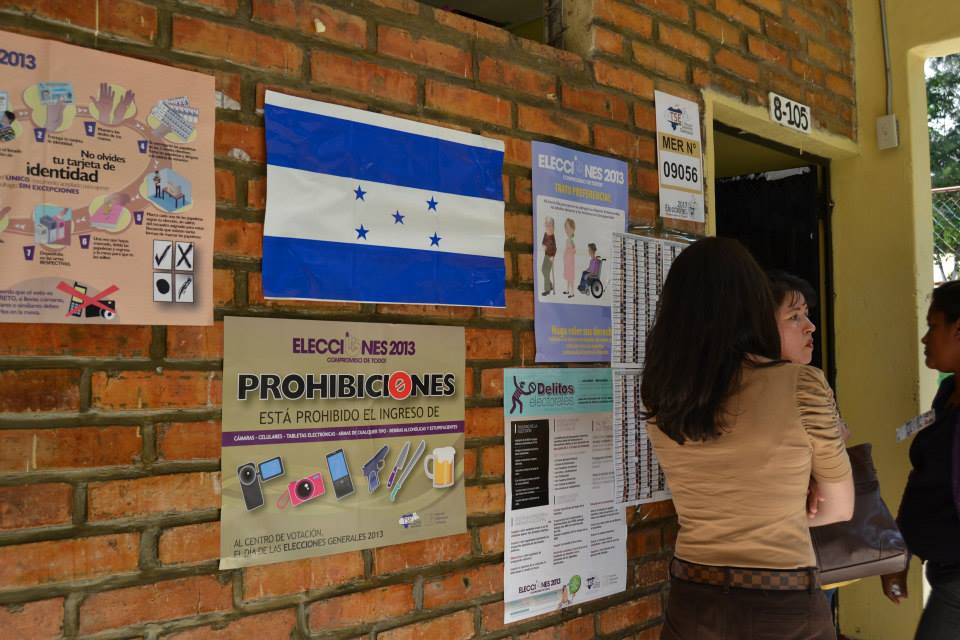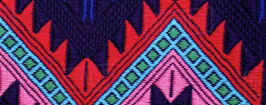Part II of JASS’ post-election analysis in Honduras. Articles written by JASS Mesoamerica’s Laura Carlsen.
Lives at risk as tensions mount
What’s at play in these elections is not just the person and the party that will govern the next four years, but the future of one of the most violent and impoverished nations on earth. For women activists, who often bear the brunt of trying to feed families while stand up for human rights and against violence and corruption, the scenarios do not look bright.
Since the 2009 coup, Honduras has gone through a period of resistance and repression. Campesinos, workers, feminists, students, LGBT, indigenous and other citizen organizations maintained a presence in the streets in resistance to the coup imposed government and in defense of democracy every day for months. While the coup against the elected president Zelaya became a model to be copied by the rightwing against progressive governments around the world, the resistance also became a model for citizens fighting for democracy around the world demonstrating how continuous, creative and courageous mobilization would keep a broad democracy agenda alive and spreading, an agenda that included demands for gender justice and women’s rights in an unprecedented way.

Under the regime of Porfirio Lobo, repression grew and by 2013 more than 200 opposition members had been assassinated. Poverty, militarization, violence and violence against women also grew. The new regime consolidated control by the elite. Extreme poverty increased 26 percent during Lobo’s term. The government and the private sector joined forces to fully exploit land and natural resources which launched an offensive against the indigenous and campesino communities and even some urban barrios. Their refusal to be displaced or give up their land and homes has led to violent attacks against them. The government-initiated a radical new economic development strategy that cedes sovereignty of entire regions to transnational corporations as well as offering unprecedented concessions for mining, water, energy and other resources.
Fights to defend resources and territories have been met with violent crackdowns by private security personnel and allied state security forces, and by the criminalization of grassroots leaders. Berta Caceres, leader of the Civic Council of Popular and indigenous organizations of Honduras (COPINH) and a leading figure in the defense of land and women’s rights, is one of a growing number of movement leaders arrested on trumped up charges and facing prosecution.
Honduras also has geopolitical and economic significance to the U.S. government. Building on a history of using Honduras as a base to support the Contra war against the Sandinistas in the 1980s, since the coup, the US has revitalized and expanded old military bases like Soto Cano and ramped up military—police operations to make Honduras a critical base of operations for the war on drugs. The U.S. Drug Enforcement Administration (DEA) and other security and military actors have spread throughout the country causing human rights violations and murders, such as the Ahuas case—a DEA operation in which four Hondurans including two pregnant women and two minors were shot from a State Department-financed DEA helicopter. The joint US-Honduran military Operation “Martillo“ has been extended indefinitely.
What next for women’s rights and movements?
With the result of the vote still in doubt, protesters have hit the streets and have been met with tear gas and billy clubs. The elections have provoked soul-searching among many regarding the efficacy of elections and political parties to achieve democratic aspirations. Within Honduran women’s organization opinions are divided. Many were skeptical going into the elections – both about the political parties and about the process itself – but today, cynicism about the formal democratic process is even more common. While some saw the elections as a viable way to break the power of the right and to advance a human rights agenda, the Honduran party system has a long history of negotiating interests from above.
Current scenarios are bleak for movements in the short term. The Electoral Tribunal and other institutions, stacked by conservatives in power, are unlikely to sponsor a full recount that favors the center left. An alternative scenario would be the negotiation of power quotas within Congress and the cabinet between the ruling National Party, LIBRE—under the leadership of former president Zelaya, and other parties that have filed complaints. The Anti-Corruption Party and Liberal Party seem to be involved in this kind of negotiation and LIBRE leaders could join in. In this scenario, LIBRE, in alliance with other parties, could become a counterweight to the ruling party in Congress enough to make it difficult for the new president to continue the National Party agenda and even perhaps block some of the most controversial measures. This process does not guarantee a voice for grassroots movements, which will need to continue to organize and mobilize from the local to the global level to be heard.
In any of these scenarios, social movements are weakened and disappointed at least in the short term. President-elect Juan Orlando Hernandez’s proposals to reinforce the use of the army on the streets and in police tasks, to weaken labor rights, and to cede territory and resources without any regulations to transnational investment spell more trouble and violence for human rights defenders. His religious fundamentalism will mean more attacks on women’s rights and the LGBT community, and the continued power of the church in a state that is rapidly losing its secular standing.
The results of the elections create a military and transnational dictatorship that leaves us with a negative outlook for the defense of human rights and greater vulnerability for women human rights defenders,” stated Daysi Flores of the Honduran Network of Women Human Rights Defenders and JASS Mesoamerica.
Gilda Rivera of the Center for Women’s Rights noted a need for the movement to retrench and do some honest assessment. “The social and popular movement must break out of its isolation, link up more and define its resistance strategies, but we also have to recognize that the social and popular movement and women within it have few resources and there are real weaknesses in leadership.”
Berta Caceres told us shortly after the elections, “What we have to do in this country is to keep up the fight, reinforce all our strategies of emancipation, decolonization… convinced that we have to save this country from this project of capitalist death, and that we—men and women—are the ones who have to do it.”
Women human rights defenders see heightened risks in this new phase in Honduras’ tragic yet inspiring history. But they clearly have no intention of quitting.
As dangers mount and political forces realign, the international community must be even more vigilant and concerned about Honduras.
Berta added, “Yes, people are discouraged but we have to learn our lessons and move on to build new foundations for the country with energy and new proposals.”
Read Part I: Human rights & democracy, from a gender perspective.


























